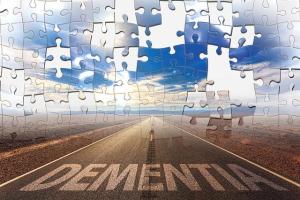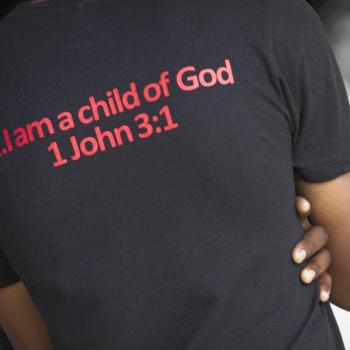
Alzheimer’s disease and other forms of dementia devastate patients and their families. I know about the devastation from personal experience.
My dad suffered from Alzheimer’s disease for several years before he died of pneumonia at age 80. Mother had some form of dementia for a year or so before she succumbed to cancer at age 87. We never learned the reason for mom’s dementia, but followed her doctor’s advice and focused on symptoms, which were very similar to my dad’s.
Life’s Final Journey
Both parents began their final journeys in life by forgetting small things that everyone forgets from time to time. The difference was that their lapses occurred with greater and greater frequently and became increasingly serious.
Where did I leave the car keys? Why did I come into this room? Where is my jacket?
Over time, the questions changed. Why did I put ice cream in the microwave? Why is my wallet in a paper bag on the bedroom floor? How could I let the beans burn, catch fire and destroy one of the kitchen cabinets?
The Fight Over Options
When my father became ill, my mother insisted on caring for him at home. My sister and I tried to talk with her about it, as did her siblings with whom she was close. But she was determined, and when my mother was determined, she usually got her way.
The situation came to a head when Daddy was hospitalized, and a dispute arose when he was ready for discharge. Mother insisted on taking him home, while the doctor insisted on discharging him to a skilled nursing home.
It wasn’t a matter of putting Daddy in the family car and driving off with him. He required an ambulance, and it seemed that the doctor and hospital controlled where the ambulance took him.
Mother was furious. It was none of the doctor or hospital’s business, she fumed. She was daddy’s wife, and she should make the decisions about his healthcare. She felt that Daddy would improve mentally and physically if he were in familiar surroundings.
The doctor was equally adamant. Daddy had to be discharged to a skilled nursing home.
Mother was getting nowhere. Then suddenly, she appeared to relent. An ambulance took daddy to a facility nearly 50 miles from home, and she spent her days staying with him.
Only the matter wasn’t settled. Mother had no intention of leaving Daddy in the nursing home, and there was nothing the doctor could do about it.
A Difficult Solution
Two weeks after Daddy entered the nursing home, my mother arranged for her brother to pick me up in his SUV and go rescue my bedridden dad. With great effort, we got Daddy into the SUV, made him comfortable and took him home, where several people got him into the house and his bed.
It was stressful beyond words, but mother was right in one way. Within a few days, Daddy could once again recognize us and sit up in bed while I trimmed his hair. His appetite improved, and he regained the ability to feed himself and have limited conversations.
A Physical & Emotional Toll
Mother was my dad’s primary caregiver for the next two years, and it took a serious physical and emotional toll on her as he slowly lost his battle with dementia. My sister and I helped as much as we could, but both of us had children and full-time jobs.
The physical demands of caregiving eventually forced mother to place Daddy in a nursing home, but I know she felt guilty.
He was a big man, and she was a small woman. As his mind and body deteriorated, she could no longer do the lifting and tugging that was required. She eventually agreed on a nursing home, but it had to be on her terms.
After my father died, I continued to see my mother nearly every day. But I did not realize or accept the fact that she was beginning to have serious cognitive problems of her own.
My denial ended when she became lost while driving to the beauty shop. She had driven the route for decades, and this lapse alarmed my sister and me.
Once again, we faced the slow, terrible death of someone we deeply loved. Thankfully, I had a strong faith in God, but I’m not sure about my sister.
Prayer gave me strength, and God showered me with his love. I knew that although I was losing the only parent I had, she would reunite with the husband she loved and I would eventually reunite with both of them in heaven. There was no doubt in my mind.
“The Most Stressful Human Experiences”
Caring for a loved one with dementia and experiencing the death of that person are “generally considered two of the most stressful human experiences,” according to the National Institutes of Health (NIH). I would agree.
At the end of their lives, my dad was bedridden and could do nothing for himself. That situation posed one set of problems. Mother, on the other hand, was ambulatory and prone to wandering as dementia overtook her mind. That posed another set of difficulties.
She could get out of bed, unlock the front door, leave the house and wander away. My sister, who took early retirement and became our mother’s primary caregiver, could not let down her guard for even a minute.
Once, Mother disappeared from her house. My sister couldn’t find her and frantically called me at work. As I prepared to leave the office and head home to help search, I received another call saying Mother had been found.
She had crossed the gravel road by her house, walked through a cow pasture and wandered into my yard. When searchers found her, she was aimlessly walking around while wearing a thin nightgown and tattered socks.
Loneliness, Isolation and Exhaustion
Caregiving is physically and emotionally exhausting. It causes intense loneliness, isolation, anxiety and guilt. It robs the caregiver of their loved one twice rather than once. First, their loved one slips into a world of their own and ceases to recognize family members; and second, they die a physical death.
The caregiver may wrestle with their faith and angrily demand to know why God is allowing their loved one to die such a horrible death. They may even lose faith.
Yet, the National Institutes of Health (NIH) says that “religious beliefs and practices are associated with better mental health in family members.” Through our pain, we need to remember that God never leaves us.
Words of Wisdom
Christian Life Resources (CLR) encourages caregivers to…
- develop a stronger relationship with God
- pray and trust in God (most caregivers say that prayer helps)
- take on only what they can handle, which admittedly can be difficult at times
- pace themselves
- arrange for someone to take care of the loved one while they take time away from caregiving
- set limits
- check on community services in their area
- read, take a walk or soak in a soothing bath
- turn to family and friends for support
- join a support group
- see a doctor if necessary
- find reasons to laugh more often
CLR “counsels clergy, teachers, doctors, lawyers, moms and dads on a wide range of life- and family-related topics…. Most importantly, the national office educates others on the perspective of God’s Word as it relates to these issues.”
The organization’s suggestions may sound trite, simplistic and easy to dismiss, and society may scoff at them. For me, they are useful and true.
Faith gives me the strength and power I need to take on enormous problems, survive them and grow stronger.
Isaiah 41:10 says, “Fear thou not for I am with thee. Be not dismayed for I am thy God. I will strengthen thee; yea, I will help thee; yea, I will uphold thee with the right hand of my righteousness.”













